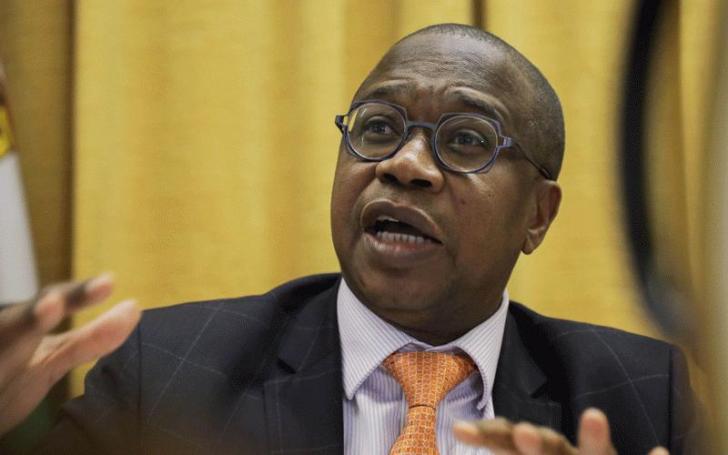News / National
Mthuli Ncube admits economy chaos
18 hrs ago | Views

The government has admitted that companies in Zimbabwe often make more money operating outside the law than when complying with regulations, in a rare acknowledgement of a system that punishes honesty and rewards evasion. The disclosure comes as new figures from the Zimbabwe National Statistics Agency (ZimStat) show the informal sector has expanded by 16,1 percentage points to 76,1 percent, signalling a rapid decline in the formal economy as more businesses flee rising taxes, excessive bureaucracy and policy instability.
Presenting the 2025 Mid-Term Budget Review in Parliament yesterday, Finance, Economic Development and Investment Promotion Minister Mthuli Ncube said reforms would be implemented to reverse a situation where compliance is unprofitable.
"We have a situation where in some sectors, players are only profitable if they don't comply with regulatory requirements," Ncube said. "If they comply, they make losses. That situation needs to be changed. We will lower the cost of doing business."
Ncube announced that the government will immediately begin reviewing regulatory fees, charges and licensing procedures, starting with the agriculture sector within the next two weeks. He said these changes would help reduce the cost of operations and enable local industries to compete both domestically and internationally.
According to the Reserve Bank, the largely unregulated informal sector generates about US$14,2 billion annually — an amount comparable to formal sector revenues. Businesses have long complained of excessive taxation as a major driver of informalisation. Local research body ZimFact recently revealed that Zimbabwe's tax system involves close to 50 different taxes under laws such as the Finance Act, Income Tax Act, and Value-Added Tax Act.
Despite calls from business groups for relief, Ncube confirmed that the government intends to expand the tax base to fund key projects under the National Development Strategy 2 (NDS2), support the ZiG currency and strengthen revenue mobilisation. He said this would include bringing emerging sectors into the tax net, encouraging the formalisation of small and medium enterprises through digital and financial inclusion, digitising tax administration, integrating data across agencies and closing loopholes that allow tax avoidance.
However, economic analysts have warned that trying to widen the tax net without addressing the high costs of compliance risks pushing more businesses into the informal sector and deepening economic challenges. Economist Chenayimoyo Mutambasere said Ncube's remarks confirm what businesses have been saying for years. "They are saying it's expensive to do business in Zimbabwe. The compliance routes are too expensive," she said.
Ncube reiterated that the government's target is to achieve a tax-to-GDP ratio of between 22 and 25 percent for middle-income countries by 2030. He pledged continued consultations with industry, consumers and other stakeholders to refine the tax system.
For now, however, the reforms that could make compliance more affordable — and slow the migration to the informal sector — remain a work in progress.
Presenting the 2025 Mid-Term Budget Review in Parliament yesterday, Finance, Economic Development and Investment Promotion Minister Mthuli Ncube said reforms would be implemented to reverse a situation where compliance is unprofitable.
"We have a situation where in some sectors, players are only profitable if they don't comply with regulatory requirements," Ncube said. "If they comply, they make losses. That situation needs to be changed. We will lower the cost of doing business."
Ncube announced that the government will immediately begin reviewing regulatory fees, charges and licensing procedures, starting with the agriculture sector within the next two weeks. He said these changes would help reduce the cost of operations and enable local industries to compete both domestically and internationally.
Despite calls from business groups for relief, Ncube confirmed that the government intends to expand the tax base to fund key projects under the National Development Strategy 2 (NDS2), support the ZiG currency and strengthen revenue mobilisation. He said this would include bringing emerging sectors into the tax net, encouraging the formalisation of small and medium enterprises through digital and financial inclusion, digitising tax administration, integrating data across agencies and closing loopholes that allow tax avoidance.
However, economic analysts have warned that trying to widen the tax net without addressing the high costs of compliance risks pushing more businesses into the informal sector and deepening economic challenges. Economist Chenayimoyo Mutambasere said Ncube's remarks confirm what businesses have been saying for years. "They are saying it's expensive to do business in Zimbabwe. The compliance routes are too expensive," she said.
Ncube reiterated that the government's target is to achieve a tax-to-GDP ratio of between 22 and 25 percent for middle-income countries by 2030. He pledged continued consultations with industry, consumers and other stakeholders to refine the tax system.
For now, however, the reforms that could make compliance more affordable — and slow the migration to the informal sector — remain a work in progress.
Source - newsday




































